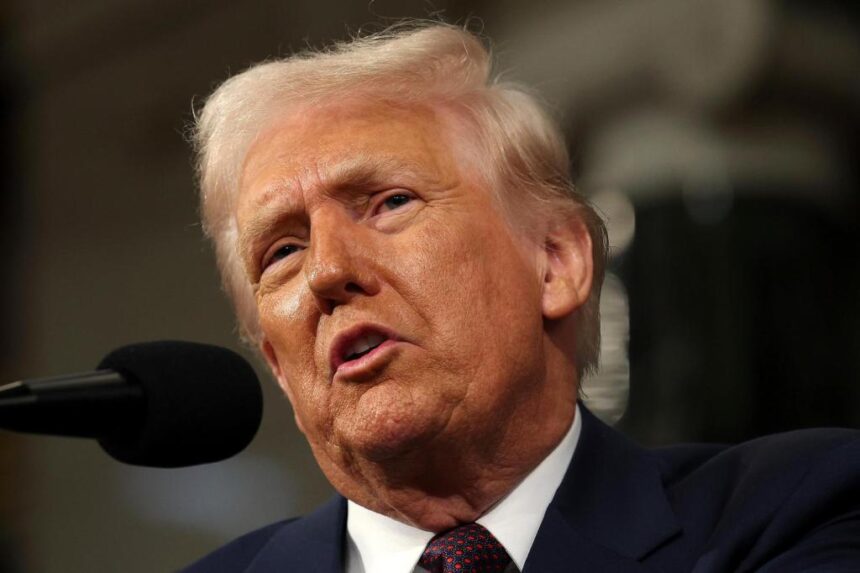President Donald Trump raised doubts about NATO’s commitment to the United States’ defense during a recent speech in the Oval Office. Trump expressed uncertainty that NATO would come to the U.S.’s aid in the event of an attack, despite the alliance invoking the defense guarantee after the September 11 attacks.
Trump also hinted at the possibility of the U.S. abandoning its commitments to NATO if member countries fail to meet defense spending targets. This statement came shortly after his nominee for NATO ambassador reassured senators of the administration’s unwavering commitment to the alliance.
The president’s critical remarks towards NATO align with his longstanding criticism of the alliance for not contributing enough towards defense costs. These comments have raised concerns, especially in light of Trump’s friendly relations with Russian President Vladimir Putin, who views NATO as a threat.
Defense Secretary Pete Hegseth’s recent statement that the U.S. would not participate in peacekeeping efforts in Ukraine and would not defend countries involved in such operations if attacked by Russia further exacerbated tensions within the alliance.
Despite Trump’s skepticism, it is essential to note that NATO did come to the U.S.’s defense following the September 11 attacks, with France actively participating in the operation. French President Emmanuel Macron emphasized the historical ties between France and the U.S., highlighting instances where the two nations stood by each other in times of need.
When questioned about U.S. policy regarding the defense of NATO countries that do not meet military spending targets, Trump reiterated his stance that countries failing to meet obligations may not receive U.S. defense support. He has consistently emphasized the importance of NATO members meeting the 2% GDP military spending target.
As the U.S. continues to pressure NATO members to increase defense spending, Trump has suggested leveraging the country’s commitment to the alliance in trade negotiations. He believes that NATO countries have taken advantage of the U.S. in trade deals, and he aims to address these disparities.
Despite Trump’s rhetoric, NATO Secretary-General Jens Stoltenberg confirmed that a record number of member nations have met the alliance’s defense spending target. Trump’s confrontational approach has been credited with encouraging countries to increase their defense budgets.
In conclusion, Trump’s recent comments on NATO highlight ongoing tensions within the alliance and raise questions about the future of U.S. commitments to the organization. As the U.S. continues to push for increased defense spending from NATO members, the dynamics of the alliance are likely to evolve.








